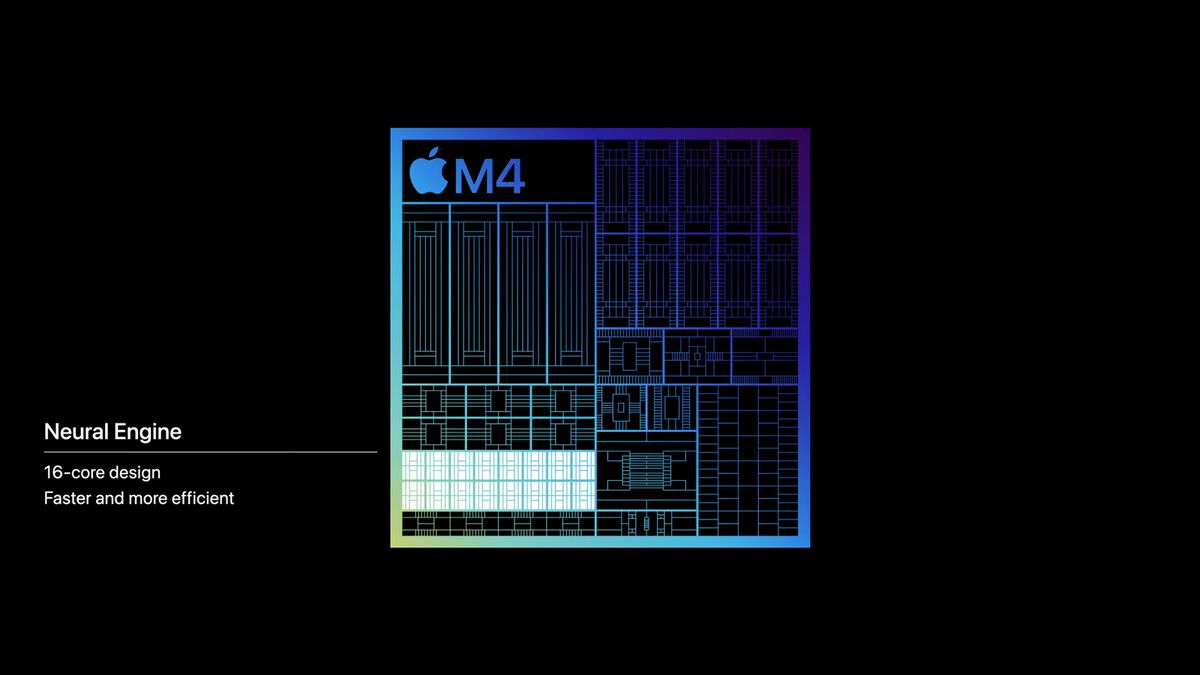Apple yesterday announced the latest iteration of its own silicon with the M4-powered iPad Pros. The company claims that the CPU is 50% percent faster than the M2 on the 12.9-inch iPad Pro (6th-generation), sporting two more cores (4 performance + 6 efficiency) over the last generation’s eight cores (4 performance + 4 efficiency). Although we cannot yet confirm these claims, the M4’s Neural Engine was tested today on Geekbench, with machine learning (ML) benchmarks posted under iPad 16,3. As ever with leaks and unverified benchmarks, take the news with a pinch of salt.
The results do not explicitly say iPad Pro (13-inch), but the specifications noted on the benchmark match that of the higher-end M4-powered iPad: a 10-core ARM processor with 16GB RAM. We also compared it with the 12.9-inch iPad Pro (6th generation)’s machine learning test results to see how it would stack up against, and the results show an incremental improvement over the last gen’s ML performance.
The M4 iPad Pro hit a Geekbench ML 0.6.0 score of 9234, around 22.9% better than the M2-powered iPad Pro’s 7511. We also compared the M4 iPad Pro’s ML performance with an M3 14-inch MacBook Pro, where its gains were a little more modest at 10.4% (8365 vs. 9234). However, the M3 MacBook Pro might have a slight advantage over the M4 iPad Pro owing to its larger chassis and battery.
The original M1 Apple silicon was a true generational leap over Intel’s x86 processors. However, the subsequent M2, M3, and M4 chips are just building on the M1’s architecture instead of offering massive gains. Nevertheless, the M4 focuses heavily on AI processing, with its 16-core neural engine supporting up to 38 trillion operations per second (TOPS) (as compared to the M3’s 18 TOPS).
However, the May 7 presentation mainly focused on hardware — the new iPad Air, iPad Pro, and the Apple Pencil Pro. We’ve only received a few snapshots of what AI features the M4 silicon will bring us, mostly on its use with Final Cut Pro for iPad 2 and Logic Pro for iPad 2. Aside from that, there wasn’t much mention of AI; we expect that to happen during WWDC 2024 instead.
Apple still has the upper hand in mobile computing, especially as Windows laptops still lag behind in terms of efficiency. But Qualcomm isn’t far behind, with the Snapdragon X Elite and X Plus chips beating AMD and Intel’s top laptop processors. Assuming Windows 11 (or Windows 12) can take proper advantage of these new Arm processors, we’re entering a new golden age of powerful yet highly efficient laptops, and Apple has to step up its game to remain in the lead.











